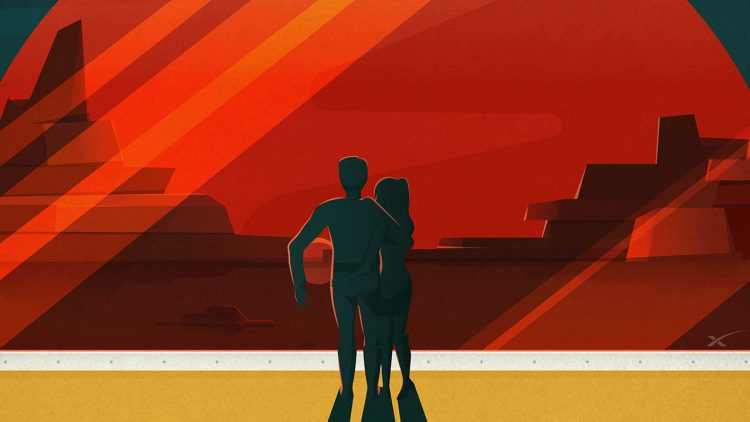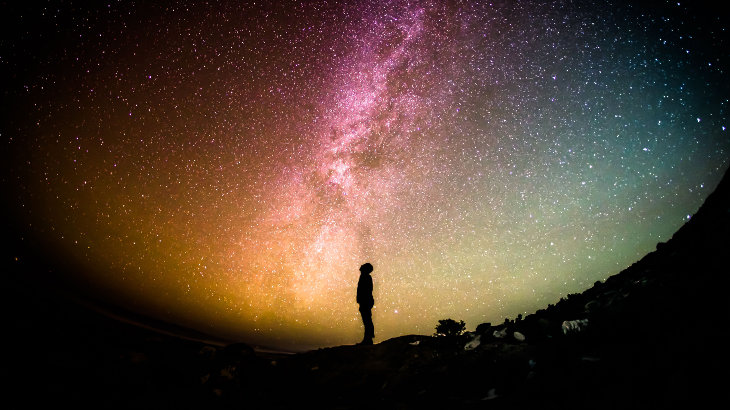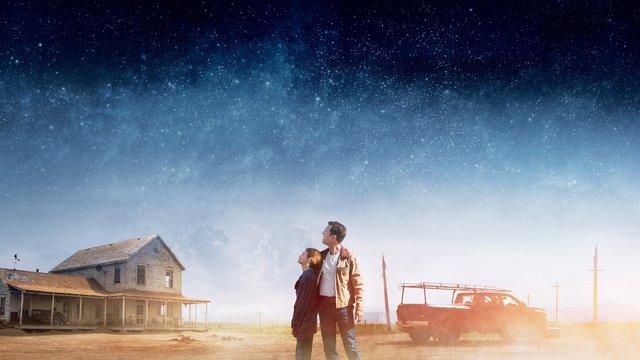Will the instantaneous transition destroy my original version?

((Note: The article is a bit long but will blow your mind))
I was stranded on Mars. The fuel tanks of the return ship have exploded, and the rescue team is unlikely to reach me before the food runs out. (Unlike Matt Damon, I do not have potatoes.) Fortunately, my ship is equipped with a (teleporter).
This carrier is definitely an innovative tool. His basic idea is simply to scan my body and produce an amazingly detailed picture, with a clear picture of each physical and nervous cell. The image file is sent to the ground, where a "new copy" is created using raw material available at the reception. All I have to do is slip into it, close my eyes, and press the red button.
But there is a dilemma here: that key that allows me to decide whether I want to preserve or destroy my "old version" of Mars after an immediate transition back home. This decision is what makes me hesitant.

On the one hand, it seems that what makes me «I» is the unique way that all my components fit together. I do not think there is a role for the soul, or that a ghost inhabits my body. I am just the result of this activity between 100 billion neurons and 100 trillion different connections.
Moreover, this activity will remain the same, regardless of which neuronal group it will do. If you think of replacing these neurons one by one, while keeping all communication and activity as it is, I will remain. So, replacing them all at the same time will not make a difference, as long as the patterns are preserved.
This leads me to the urge to press the button and return to my loved ones, back to earth abundant food, water and oxygen, which will allow me to continue repairing and replacing cells in the slowest old way.
So if you press the "Destroy" button, I will survive the transition safely. What will I lose? Nothing plays a part in me being, or in shaping my own consciousness. I must punch inside it, press the button - and then get out of the receiver back to the ground.

On the other hand, what happens if you press the Save button? Where will I be after? Will I make the journey back to earth, and then I feel sorry for the poor idiot who remained on Mars (I am old), who will face starvation slowly? Or will I be the old, envious of the new who is on earth now, and enjoys the companionship of friends and family? How scary this is!
Can I be both somehow? How will this situation be? Will I see the scene on the ground overlapping with the scene in Mars? Will I feel hungry with the joy of taking my first home meal in years? How can I decide to walk on the red sand dunes and go to sleep in my bed at the same time? really?
The nature of the resistance to change leads me to believe that I will remain the old, but the new I - whoever he is - will be like my twin, in fact it will be more like the old I of any natural twin. He feels all I feel; he has the same memories, and will be very happy because he does not starve on Mars.
But for all of the above, it will not be me: I will not think about what he thinks or suffer, nor will he be aware of my increasingly desperate experience. But if my thoughts are true, I am suddenly too opposed to putting the key on the status of "destruction." Then it seems that I will simply fade from Mars, and a new man on Earth, very like me, will mistakenly think he survived the trip.
I need to adopt a more objective view. Suppose the others were watching all this. What will they see? Lironi was wrong, pressed the button, and then - depending on the key mode - either they would see two copies of me, one on Mars and one on the ground, or just one copy on the ground and some burnt remains on Mars.

There is no real problem, from the perspective of this other. There is no test that an observer can do to determine whether I survived the flight to Earth, not a personal test, and no special readings for a "me-ometer." There is no accurate analysis of neuronal incompatibility. Everything goes as expected, regardless of the key position.
Maybe here we learn: In my experience when I insert the device, and press the button, it will look real, or I might think it is quite true, but it really is not true at all. It may be my belief that I am fixed through time is only one of the inherent illusions. For example: I once joined a gambling club, which had existed for more than 50 years, but the entire membership changed during that time.
Suppose someone asked if it was the same club. "Yes it is or not it" would be a reasonable response. Yes: The group has met continuously monthly for 50 years. But no: none of the original members are still here. There is no one objective answer to the Gambling Club identity question, there is no substance to the club that has remained the same and changed over time.
The same may apply to me. I think I was the same - I was a person - all my life. But if I do not have an internal entity, there is no sense behind knowing what my experience will be when I "press" the button. Only the observer would say: First there was one, then there were two (with the key on the "save" situation), each of which is believed to be the "only one".
There is no truth about what this has experienced, because it was not there to begin. There was only a complex composition of members, like a gambling club, who believed themselves to belong to the "sole club" over time.
There was only a short break, and then I went back to thinking about that problem, wondering if I would survive - just to know that I was not and will not be there, yet the decision still stands in front of me: do I press - do we press the button?
Note: I do not claim to invent this intellectual experience. In 1775, the Scottish philosopher Thomas Reed raised a very similar question in a letter to Lord Camus referring to Joseph Bristley's physical doctrine: "If my mind loses its original structure, and after hundreds of years, the same material is completely reconstituted To become an intelligent being, I think that this object will be "me" or if two or three of these creatures form "me" too.
This idea was first encountered during the preparation of the film "Al-Muraikhi," in front of the group "The Mental Self" (1981), edited by Douglas Hofstadter and Daniel Dennett. The British philosopher Derrick Parfitt also took advantage of this idea in his book Causes and Persons (1984). The blogger and scientific anchor SGJ Gray presented an insight into the problem in one of his videos, "The Problem of Vector" (2016).
@elbaryboy good post, voted.
elbaryboy good blog
Up voted. Please do the same with me.
@noor.money